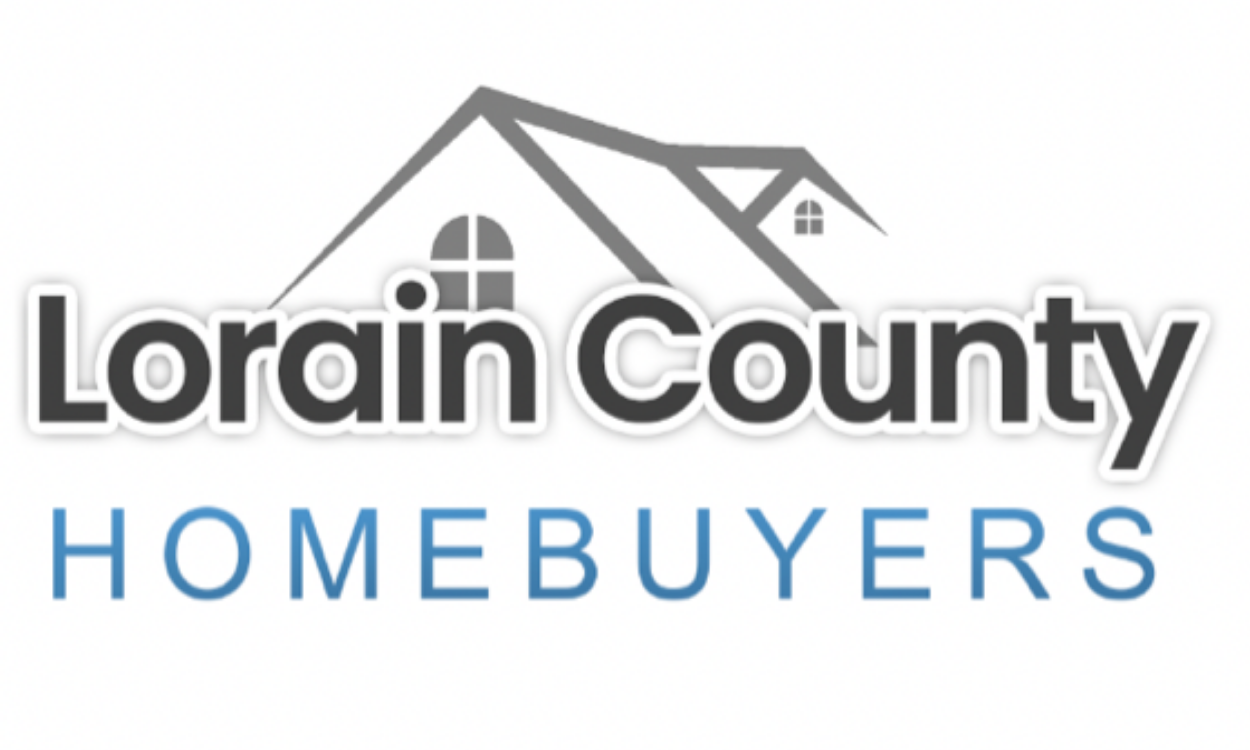Learn who pays the HOA fees at closing in Ohio, including various responsibilities and costs associated with Lorain County Home Buyers. Understand the financial obligations and entities involved to ensure a smooth transaction.
Ohio HOA Fees at Closing: A Comprehensive Guide for Buyers & Sellers
Who Pays HOA Fees at Closing in Ohio? A Detailed Breakdown
In Ohio, knowing who pays the homeowners association (HOA) fees at closing is important for both buyers and sellers. These fees are part of the real estate transaction and can sometimes cause disagreements. Typically, the seller pays any unpaid HOA fees up to the closing date. After closing, the buyer takes over responsibility for ongoing fees. However, some agreements might change these rules, so it’s smart to look at the sales contract carefully. Both parties need to be clear on who pays the HOA fees at closing to avoid any misunderstandings.
Understanding Prorated HOA Dues in Ohio: Calculations and Responsibilities
Prorating HOA fees in Ohio means splitting dues based on how long each party—buyer or seller—owns the property during the billing period. For example, if an HOA fee is due every three months and closing happens halfway through, both parties share the cost fairly. This calculation makes sure the seller pays for their ownership time until closing, and the buyer takes over from there. Understanding this process helps with clear fee distribution responsibilities, making the real estate closing smoother.
Essential HOA Documents to Review Before Closing in Ohio
Examining crucial HOA papers helps one to close on an Ohio house. Key documents include the association bylaws, regulations, and any existing agreements that could affect new ownership. By checking these documents, buyers can get ready by understanding the rules they must follow, while sellers can make sure they meet all settlement responsibilities. Reviewing these documents is a key step in the closing process, helping to prevent unexpected problems and ensuring a smooth transition for everyone involved.
Navigating HOA Fees in Ohio Real Estate Transactions
Unpaid HOA Fees at Closing in Ohio: Legal Implications and Solutions
In Ohio real estate transactions, unpaid HOA fees can lead to legal issues. When closing on a property, both buyers and sellers need to know if there are any outstanding fees owed to the homeowners association (HOA). If these fees are not addressed, it can cause disputes, delay closing, or even result in legal action. Typically, it’s the seller’s job to settle these fees, but agreements can be made during closing. Homeowners should also ensure that their Homeowners’ Insurance is up-to-date to protect their property and investment during the transaction.
To solve unpaid HOA fee issues, review the property’s financial standing with the HOA. Work with a real estate attorney or an experienced agent to make sure all dues are paid before closing. This strategy guarantees a more seamless property ownership transfer and helps to prevent conflicts.
Negotiating HOA Fees During Closing in Ohio: Strategies and Best Practices
Negotiating HOA fees during the closing process in Ohio needs careful planning and good communication between buyers and sellers. Knowing each party’s responsibilities helps reach a fair agreement. Here are some best practices:
- Open Communication: Start discussions early to clarify who is responsible for paying the HOA fees.
- Review HOA Documents: Check the association’s financial statements and rules for any special assessments or pending fee increases.
- Suggest a cost-sharing arrangement under which both sides help to resolve unpaid charges.
- Leverage Professional Help: Get advice from a real estate professional on standard practices for your area.
These strategies help create a fair settlement, preventing misunderstandings and ensuring a smooth transaction.
How to Determine the Exact Amount of Outstanding HOA Fees in Ohio
Finding out the exact amount of outstanding HOA fees in Ohio is key when getting ready for a real estate transaction. Here’s how you can verify these fees:
- Request HOA Documents: Get the latest financial statements, bylaws, and payment history from the homeowners association.
- Consult with the Escrow Company: The escrow company involved in the transaction usually has information about any unpaid dues tied to the property.
- Verify Payment Status: Check with the HOA to confirm the current status of payments and any fees due.
- Calculate Using Provided Data: Use the data gathered from HOA documents to figure out the exact amount owed.
By following these steps, you can make sure that all outstanding HOA fees are accounted for, ensuring transparency and avoiding future disputes. Working with local experts like Lorain County Home Buyers can also provide valuable help throughout this process.
Seller Responsibilities and HOA Fee Disclosure in Ohio
Seller’s Duty to Pay Outstanding HOA Fees Before Closing in Ohio
In Ohio, sellers must pay all outstanding HOA fees before closing a real estate deal. If sellers don’t settle these fees, it can delay the closing process. Paying these fees helps make the transaction go smoothly. Buyers and real estate professionals should check the seller’s financial records to make sure no fees are unpaid at closing.
Legal Consequences for Sellers Who Don’t Pay or Submit HOA Dues
If sellers in Ohio do not disclose or pay outstanding HOA fees, they can face legal trouble. Not telling buyers about unpaid fees can lead to legal issues and affect the sale. Real estate deals need honesty, and hiding unpaid HOA fees can lead to lawsuits. Sellers should know their responsibilities to avoid problems and meet all disclosure rules.
Verifying Seller’s HOA Fee Payments: Steps to Take Before Closing
To check that all HOA fees are paid before closing, buyers and their agents can take these steps:
- Request Financial Statements: Ask the seller for documents showing all HOA fee payments.
- Contact the HOA: Call the homeowner association to confirm payment status.
- Review Closing Disclosure: Check that the closing disclosure has correct HOA fee details.
- Include Payment Confirmation in Contract: Put terms in the sales contract that ask for proof of payment before closing.
- Seek Professional Guidance: Get help from a real estate attorney or agent with experience in Ohio real estate.
Taking these steps helps buyers protect their investment and ensures a smooth change in property ownership. Lorain County Home Buyers advises working with professionals to verify all HOA fee payments during real estate transactions in Ohio.
Protecting Yourself from HOA Fee Disputes in Ohio
Avoiding HOA Fee Disputes at Closing: Proactive Steps for Buyers & Sellers
In Ohio, real estate transactions can get tricky when it comes to homeowners’ association (HOA) fees. To avoid disputes, both buyers and sellers should take certain steps.
Early on, purchasers should review the financial records and policies of the HOA. This enables them to know any additional fees or outstanding obligations. Then they can discuss with the seller who pays these closing costs, simplifying the procedure.
Sellers should pay all current and past HOA fees before putting their property on the market. Offering proof of payment to buyers can prevent misunderstandings. Working with a real estate professional experienced in HOA matters is helpful for both parties, ensuring everything is correctly documented and avoiding legal problems later.
Unpaid HOA fees could have effects for Ohio buyers and sellers as follows.
In Ohio, unpaid HOA dues can cause major legal problems. These costs could create property liens that complicate the transfer of ownership and maybe postpone closing. This is a problem for both buyers and sellers since the buyer may not get clear ownership, and the seller could face legal troubles.
During closing, unpaid HOA fees are often held in escrow. Real estate professionals ensure responsibilities are clear and that enough money is set aside to cover these fees. Not dealing with this might lead to lawsuits or fines. Handling these issues quickly is very important.
The Real Estate Professional’s Role in Managing HOA Fees During Closing
Real estate professionals play a big role in handling HOA fees during closing. Their know-how helps both buyers and sellers work through these matters. Agents make sure all obligations related to HOA fees are known and that there’s money allotted for them in the closing costs.
In Ohio, agents act as go-betweens for buyers, sellers, and HOAs, clarifying what each party must do. By working with title companies and lawyers, agents help prevent misunderstandings and ensure a smooth transaction. It’s important for everyone to work closely with their agents to keep things clear and meet legal needs easily.
Managing these issues well can save time and money, making for an easy change of property ownership.
Additional Resources and Ohio HOA Regulations
Key Ohio Laws Regarding HOA Fee Payments at Closing: A Summary
Understanding the legal aspects of HOA fees during real estate transactions in Ohio is important for buyers and sellers. Ohio law has specific rules about who should pay these fees at closing. Usually, sellers are responsible for settling any outstanding HOA dues before selling the property. It’s wise to consult an estate attorney or a real estate professional to navigate these legal details effectively.
Finding Reliable Resources for Understanding Ohio HOA Regulations
For guidance on Ohio HOA regulations, there are many resources available. Homebuyers can talk to realtors and community experts who know Ohio real estate well. Checking guides and reliable online platforms can give useful insights into homeowners associations and their legal rules. Doing thorough research ensures you have accurate information, helping you make confident decisions when buying a new home.
Ohio HOA Fee Dispute Resolution After Closing: A Step-by-Step Guide
If you face HOA fee disputes after closing in Ohio, follow these steps to resolve them:
- Examine Papers: Review your HOA agreement and closing papers to find out what you owe.
- Identify the Dispute: Find out exactly what the dispute is, like a billing mistake or a misunderstanding.
- Communication: Contact your HOA board to discuss the problem. Keep a record of all communications.
- Negotiate a Solution: Try to reach an agreement, possibly using mediation.
- Seek Legal Advice: If unresolved, consult a real estate attorney familiar with Ohio’s regulations.
- Formal Resolution: Consider arbitration or court proceedings if necessary.
These steps help in solving conflicts and reducing legal issues. Homebuyers should address disputes quickly to maintain good relations with their homeowners association.
What are typical closing costs related to HOA fees in Ohio?
Closing costs for homeowner association (HOA) fees can include current dues that are shared between the buyer and seller, transfer fees, and any dues the seller still owes.
Who is generally responsible for paying HOA fees at closing in Ohio?
Usually, the seller pays any unpaid HOA fees at closing. New homeowners might pay a prorated amount for the rest of the billing period.
Are there contingencies related to HOA fees during a home purchase in Ohio?
Yes, purchase agreements may have contingencies to protect buyers if unexpected HOA fees arise. It’s important to check these during negotiations.
What are HOA transfer fees, and who covers them?
HOA transfer fees are charges for transferring ownership within an HOA. Typically, the seller pays these, but it can vary based on the agreement.
How can owners make sure every HOA fee is obvious before closing?
Buyers should ask for documents showing any unpaid HOA fees or liens. A title search can reveal these to avoid surprises at closing.
Are HOA fees tax-deductible in Ohio?
In general, HOA fees are not tax-deductible. You may want to talk to a tax advisor about specific situations for exceptions.
What needs to be considered regarding HOA regulations when buying a home in Ohio?
Homebuyers should read the HOA’s rules and bylaws. Knowing these can help prevent future disputes and ensure you follow community rules.
How can one best prepare for unexpected HOA costs?
Plan for possible increases in HOA dues and special assessments. Understanding your community responsibilities helps manage unexpected expenses.
Key Insights
- Understanding Closing Fees: In Ohio, closing fees cover charges like title search, title insurance, and escrow costs. These are key for transferring property ownership.
- HOA Fees at Closing: The seller usually pays any outstanding HOA dues at the closing in Ohio. It’s important to check specific contingencies during this process.
- Who Pays the Fees: It’s crucial to determine who pays for services such as attorney fees and property taxes. In Ohio, these are often decided by negotiations.
- Role of Transfer Fees: HOA transfer fees are typically paid by the seller, but buyers should be aware of any hidden costs in their agreement.
- Importance of Title Insurance: Title insurance protects both lenders and buyers from potential liens or ownership disputes, making it a critical part of Ohio real estate transactions.
- Assessing Property Value: A home appraisal ensures the sale price matches the market value, which safeguards the interests of both buyers and lenders.
- Escrow Management: Escrow holds funds until all sale conditions are met, aiding in a smooth transaction. Knowing escrow terms can help prevent unexpected issues during closing.
- Negotiating Contingencies: Buyers and sellers in Ohio should discuss who handles HOA payments and closing costs to avoid disputes.
- Navigating Legalities: Understanding Ohio homeowner association bylaws and real estate rules is essential to ensure compliance during transactions.
- Managing Closing Costs: Both buyers and sellers need clarity on what costs are covered, including realtor commissions, which are generally split between them.
- Getting Ready for a Seamless Closing: From contract reading to lender criteria, knowledge of the closing process stages helps one to prepare for a smooth closing.
- Ohio’s Real Estate Market: Factors such as location, like Cleveland or Columbus, can affect closing costs and buyer responsibilities in Ohio.
- Protecting Against Liens: A thorough title search helps protect against any existing liens on the property, ensuring a clear transfer of ownership.
- FAQs and Common Questions: Addressing common concerns like who pays attorney fees or how transfer fees impact closing enhances transparency.
FAQs
- In Ohio, who usually settles the HOA fees at closing?
Usually, the seller settles any unpaid HOA fees at closing; this can be discussed further. - What are typical closing fees in Ohio?
Common fees include title searches, escrow services, and attorney fees. - Are HOA fees tax deductible?
HOA fees are usually not tax deductible, but exceptions may apply for rental properties. - Are Ohio closing expenses negotiable?
Certainly, sellers and purchasers can discuss who pays particular transaction-related expenses.






